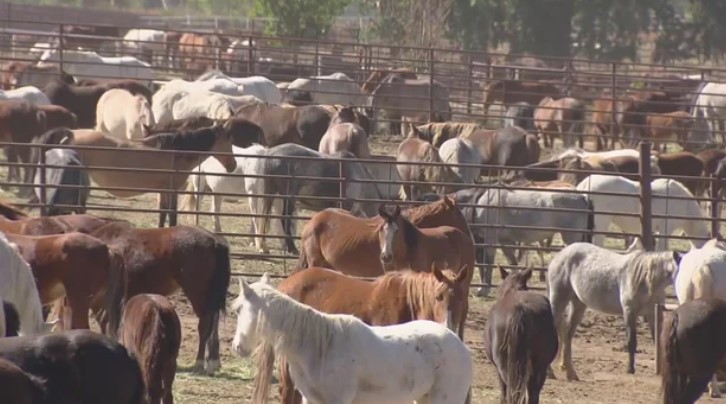Horses at prison need new homes as vocational training program ends

By Christa Swanson
Click here for updates on this story
Colorado (KCNC) — A 30-year-old program giving 30 incarcerated individuals in Colorado an opportunity to care for wild horses is coming to an end.
The Wild Horse Inmate Program offers vocational training and rehabilitation to the state’s incarcerated population, while also supporting the need to manage and protect the population of wild horses and burros.
The Bureau of Land Management periodically removes groups of wild horses from Sand Wash Basin in order to protect natural resources and prevent overpopulation that could threaten the wild horses. The East Cañon City Prison Complex, a collection of state prison buildings and ranches, is one of the places the horses are taken. In 2021, CBS Colorado was given a rare tour of the ranch and horse pens where the mustangs are prepped for adoption.
The BLM says it is not renewing its contract with the Colorado Department of Corrections, which is set to expire Sept. 30. A 60-day extension on the program was granted through the end of November.
Now the bureau is working to find new homes for 100 horses at the prison in Cañon City.
“We are saddened by the discontinuation of this successful partnership and impactful program,” said Andre Stancil, Executive Director of CDOC. “The Colorado Department of Corrections is immensely proud of the legacy of this program and the positive impact it has had on participants, staff, and the community. While we regret the end of this chapter, we remain committed to working with BLM to ensure a smooth transition and to creating new opportunities that advance our mission of rehabilitation and public safety.”
Friends of the Mustangs President George Brauneis says that they will continue to work with BLM and other organizations on their wild horse program, and hope to make it a model for the nation.
The bureau said five state employees affected by the change will be reassigned to other roles within the department. The 30 incarcerated people in the WHIP will also be reassigned to other vocational programs.
Please note: This content carries a strict local market embargo. If you share the same market as the contributor of this article, you may not use it on any platform.